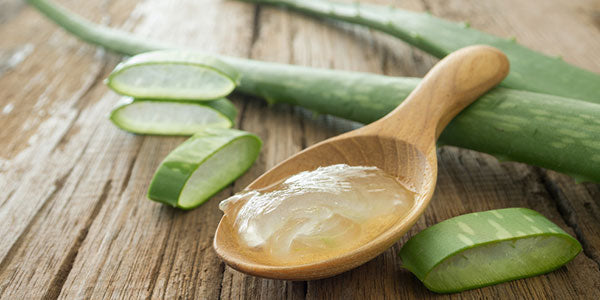
Aloe vera has received lots of attention in the health world recently. The use of aloe has vastly grown from skin application, to gastrointestinal health, all the way to dental use. With conflicting research in regards to its oral consumption and digestion, there is more significant data in regards to its cosmetic and topical use. The five ultimate things you can do with aloe vera are not just health promoted, but backed up with research.
5 Ultimate Aloe Vera Uses and Benefits
1. Ease Sun Burns
When it comes to treating a sunburn, the American Academy of Dermatology recommends a moisturizer that contains aloe vera or soy to help sooth the skin. Additional research suggests aloe vera aids in the healing of sunburns and may help the skin from peeling.
2. Treat Mouth Sores
According to the Academy of General Dentistry, the use of aloe vera can reduce the painfulness of mouth and canker sores. Aloe accelerates healing and reduces pain from mouth sores related to its anti-inflammatory properties and soothing effects. Antiviral and antibacterial properties of aloe can further help combat the etiology of most contracted mouth sores.
3. Reduce Dental Decay
Like toothpaste, aloe vera gel may eliminate disease-causing bacteria in the mouth. Aloe vera tooth gel has an effective control in the reduction of cavity-causing bacteria. In fact, some research has shown aloe is more effective at controlling bacteria growth compared to commercial tooth pastes found on the store's shelves.
4. Improve Skin Health
Supporting evidence suggests aloe is an effective treatment for psoriasis, an autoimmune disease characterized by red, itchy, and scaly patches of skin. Aloe may even reduce acne and its associated scarring. However, experts suggest further research is warranted to firm conclusions regarding the effects of aloe vera on skin health.
5. Reduce Inflammation
Gel from the aloe plant provides antioxidants, compounds known to reduce inflammation. Although the antioxidant composition is substantial, interesting research has shown the antioxidant composition varies between growth periods. In a study featured in the Journal of Agricultural and Food Chemistry, three-year old plants showed greater antioxidant activity compared to two- and four-year old aloe plants. However, it's essential to note all three plant generations demonstrated antioxidant effects and properties.
References:
Hu Y, Xu J, Hu Q. Evaluation of antioxidant potential of aloe vera. Journal of Agricultural and Food Chemistry. Available at: http://www.ncbi.nlm.nih.gov/pubmed/14664546
Treating sunburn. American Academy of Dermatology. Available at: https://www.aad.org/public/kids/skin/skin-cancer/treating-sunburn.






